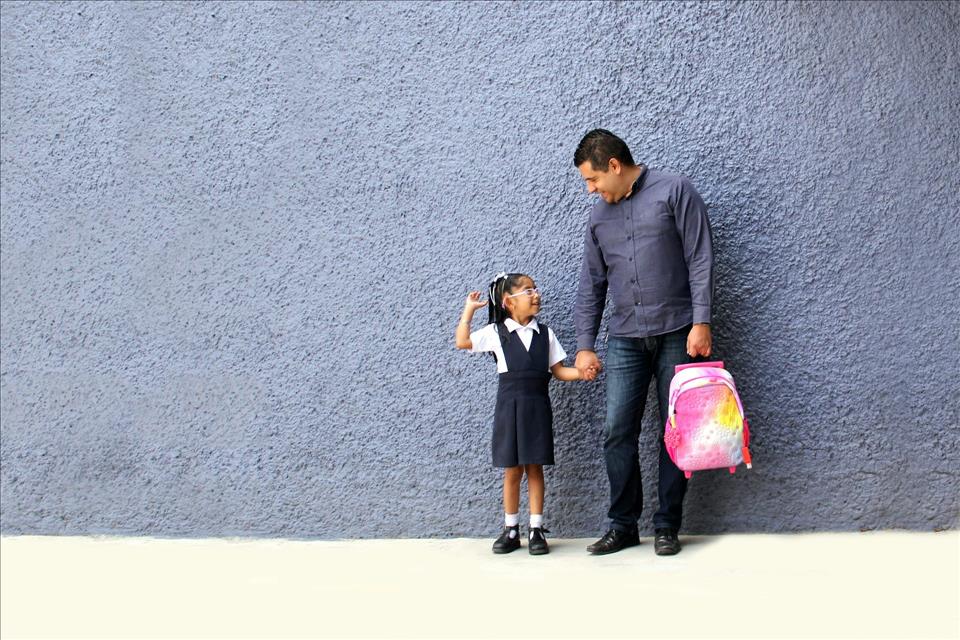Working Together With Your Child's New School Can Make Their First Weeks Easier
As we move through life, we undergo several key changes like this, both in education and in our adult lives. Key transitions in childhood include starting nursery, beginning school, and moving from primary to secondary school . As an adult, you may have been through many further transitions, such as starting a new job or moving into a new home.
But thinking of the start of school as one single event – one transition – doesn't really capture the enormity of this new stage in your child's life. A better perspective would be to expand the single word“transition” into the recognition of a number of multi-dimensional transitions , or changes, for both your child and for you. And thinking in this way may be helpful for both of you in coping with this change.
For children starting primary school, these multiple transitions may involve things such as a change in routine and their understanding of the world as they have to leave the house and travel to an unfamiliar place.
Their experience of food will be changing as they try new foods in their school, and perhaps have to eat with different rules than they have at home. Clothing changes, too. They may need to wear a uniform made of materials they haven't felt before and that don't feel comfortable or familiar.
Perhaps the biggest transition is being away from you for hours at a time. This is especially the case for those children who may not have attended a pre-school setting, or went to nursery part time. It is paramount, therefore, that transitions maximise the involvement of parents and carers .
Research has shown that transitional experiences have an effect on children's attainment and wellbeing. Having a positive transitional experience can result in children developing positive attitudes, and they may learn valuable skills for embracing future change .
If we accept that transitions are multiple and have a ripple effect on a child's life, we can take care to support all areas that will be affected. These include the child's relationships, culture, routines, environment, perceptions and aspirations. This holistic understanding emphasises the importance of adopting collaborative approaches with children and families during transitional planning.
Fostering a purposeful partnershipThe key to positive transitions is a strong partnership between home and school. Teacher-child and teacher-family relationships should be prioritised and nurtured . Having trust, respect and open channels of communication are the building blocks for future success.
The partnership between families and schools is really important. Drazen Zigic/Shutterstock
It can be helpful to see the transitional period as your child begins school as the start of a purposeful partnership between you and your child's teacher. You can meet as equal experts in your child's welfare and support.
Teachers and support staff should welcome children in with the message:“We want you here; you belong here.” Teachers must be trusted for their professional knowledge, and well supported by their school to be lifelong learners where regular training is provided. Through mutual respect, teachers can offer care and the love of learning to help children develop both academically and socially.
It is perfectly normal if you feel nervous about your child starting a new school. Trust your judgment and knowledge of your child, and feel free to speak up when things do not seem to be going well, or if your child's needs could be better met.
Parents need to be their child's advocate, ready to communicate and share on the child's behalf – especially as they may not fully be able to explain their own needs.
You could consider helping your child create a poster about themselves to give to their teacher. What do they love to do? Is it playing outdoors, or building with blocks? Do they have a favourite book or toy? Are there any things that scare your child or make them nervous? What are some things that make them feel better if they are upset?
Prioritising your child's voice is crucial, and this could help their new teacher gain a quicker insight into who they are.

Legal Disclaimer:
MENAFN provides the
information “as is” without warranty of any kind. We do not accept
any responsibility or liability for the accuracy, content, images,
videos, licenses, completeness, legality, or reliability of the information
contained in this article. If you have any complaints or copyright
issues related to this article, kindly contact the provider above.
Most popular stories
Market Research

- United States Lubricants Market Growth Opportunities & Share Dynamics 20252033
- UK Digital Health Market To Reach USD 37.6 Billion By 2033
- Immigration Consultancy Business Plan 2025: What You Need To Get Started
- United States Animal Health Market Size, Industry Trends, Share, Growth And Report 2025-2033
- Latin America Mobile Payment Market To Hit USD 1,688.0 Billion By 2033
- United States Jewelry Market Forecast On Growth & Demand Drivers 20252033






















Comments
No comment